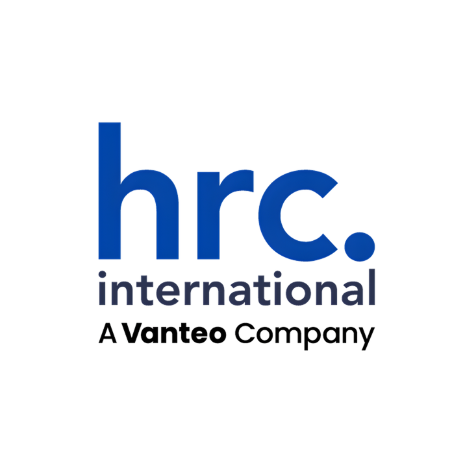As the hotel industry gears up for a new phase of growth, understanding the trends and dynamics that shape it is more critical than ever. From stabilizing occupancy rates to evolving demand patterns, this overview sheds light on how the industry is preparing for a brighter future. Let’s dive into the outlook and explore what they mean for hospitality jobs in the coming years.
A Period of Stability: What It Means for the Industry
The U.S. hotel market has experienced significant fluctuations over the past few years, but as of 2024, the industry is entering a period of relative stability. Occupancy rates, which had been volatile, have now leveled out, and Average Daily Rate (ADR) improvements are more consistent. This shift is a welcome change for hotel operators, allowing them to plan and strategize with a clearer picture of market conditions.
This stability doesn’t mean the absence of challenges. Rather, it offers a foundation for hotels to adjust their offerings and better align with guest expectations. For those in hospitality jobs, this environment provides an opportunity to focus on enhancing guest experiences without the uncertainty of drastic market changes. It’s a chance for teams to improve service quality and innovate in their operations, knowing that the market trends are more predictable.
The Rise of Meetings and Group Events
One of the significant trends highlighted in the outlook for September 2024 is the resurgence of the meeting and group segment. As conventions and corporate group events grow, this segment plays a pivotal role in driving demand, particularly for luxury and upper-upscale properties. This trend is most evident in metropolitan areas where such properties thrive, offering a competitive edge in the market.
For those pursuing careers in hospitality jobs, this shift translates into increased opportunities in event management, corporate sales, and guest relations. Hotels that focus on group bookings and conventions need skilled professionals who can manage large-scale events and cater to the unique needs of business travelers. As a result, hospitality professionals with expertise in event coordination and corporate services will find a growing demand for their skills.
Commercial Demand
The return of commercial demand has been another key factor in the recovery of the U.S. hotel industry. With more companies encouraging their employees to return to office settings, business travel has seen a resurgence. This trend has had a positive impact on both occupancy rates and ADR, especially in cities that are home to major corporations.
This condition brings a renewed focus on the needs of business travelers. Understanding the preferences of this segment, such as the need for reliable Wi-Fi, efficient check-in processes, and proximity to business districts, can set a property apart from its competitors. The ability to cater to the business traveler with tailored amenities and services is now more valuable than ever.
Leisure Travel: Finding a New Normal
While the spike in leisure travel post-pandemic has normalized, it remains a critical component of the U.S. hotel market. Markets that rely heavily on leisure travel are experiencing adjustments in occupancy and ADR, yet these metrics remain above pre-pandemic levels. The outlook suggests that leisure travel will continue to influence the market, even if the explosive growth seen in recent years has tapered.
For those looking to enter or advance in hospitality jobs, this ongoing demand for leisure travel means that roles focused on guest services, concierge, and leisure marketing remain important. Understanding what modern leisure travelers seek—whether it’s wellness experiences, eco-friendly options, or adventure activities—can help hotels capture this segment and maintain a competitive edge.
Supply Outlook: Slow and Steady Growth
Despite a seemingly robust number of projects, the realistic increase in supply is limited. Factors like elevated construction costs and restricted financing have slowed down new hotel developments, meaning that the supply growth will remain below historical norms for the next few years.
For current and aspiring hospitality professionals, this controlled growth offers a stable job market. Fewer new hotels entering the market mean less pressure on existing properties, allowing them to focus on optimizing their operations and improving guest satisfaction. It also means that the demand for hospitality jobs will continue to be strong, particularly in regions where new developments are less frequent.
Preparing for the Future: Training and Development
With the anticipated stability and modest growth in the hotel market, investing in training and development becomes even more crucial. Employers in the hospitality industry have an opportunity to upskill their staff, preparing them to meet the evolving needs of guests. From advanced customer service training to workshops on the latest hospitality technology, these investments can make a significant difference.
Taking advantage of training opportunities can give those building careers in hospitality jobs a significant competitive edge Whether it’s learning how to use new property management software or gaining expertise in sustainable hospitality practices, continuous learning is key to staying relevant in the industry.
Also read: The Future of Hospitality Industry: Trends and Limitless Opportunities
A Bright Future for Hospitality Jobs
“We anticipate stability or modest growth during the balance of 2024 and in 2025, followed by stronger growth through 2027. As with current statistics, these forecasts are averages and, thus, encompass a fairly wide array of anticipated results.”
– Anne Lloyd-Jones
From the resurgence of business travel to the ongoing importance of leisure guests, the future of hospitality jobs looks bright. By focusing on innovation, training, and sustainability, the industry is not only preparing for growth but also setting the stage for a more resilient future.
Now is the perfect time to embrace change, enhance your skills, and seize the many opportunities in the hospitality industry. If you’re looking to build a successful career, the future of hospitality jobs is full of promise with the right mindset and commitment to excellence. Learn more about our J1 hospitality program to gain valuable international experience in the U.S. and secure a bright future in this dynamic field. Click here to get started!
Related: Hospitality Sector in Europe: Outlook and Trends for 2024

